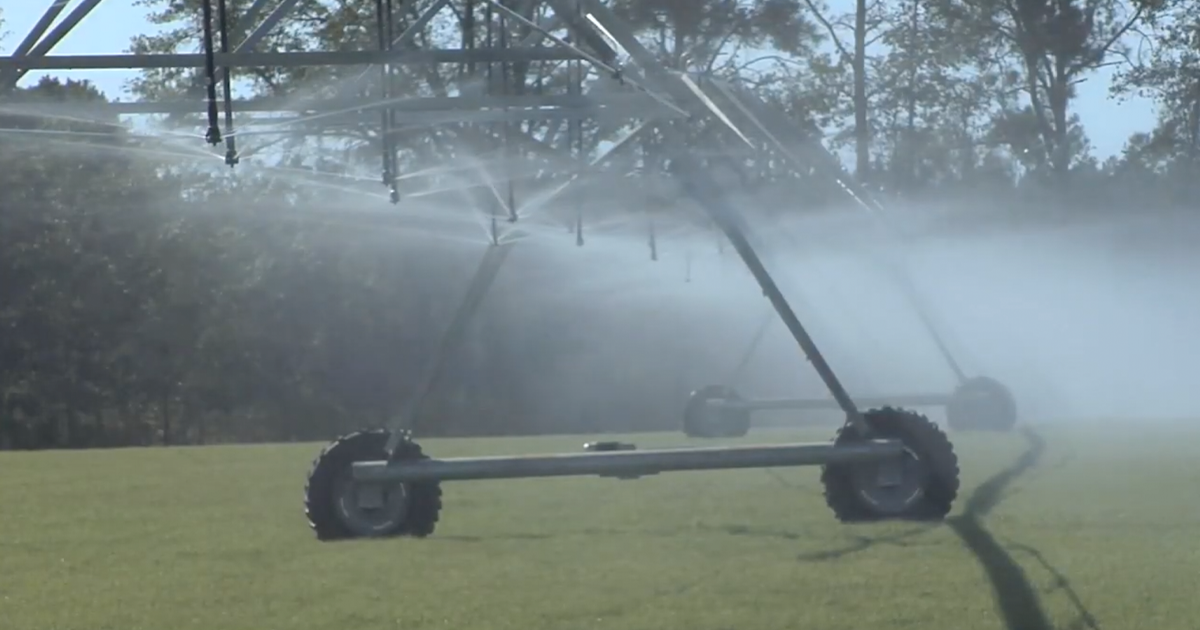Midville, GA
No matter if it’s corn, cotton, or peanuts, the one thing each of these Georgia staples need is sufficient water during growing season, and with rainfall being so unpredictable during the summer, farmers must rely on irrigation to fill in the gaps. However, the amount can sometimes be tricky, which is why having the UGA Water Efficiency Team to lean on can provide a little piece of mind.
“We’re trying to hit that sweet spot, putting in irrigation soil moisture sensors, helping farmers with different types of irrigation and water management tools such as the smart irrigation apps,” says Jason Mallard, UGA’s Area Ag Water Agent. “We are working with them on some of the different models and that kind of thing that we have.”
Getting that information comes from numerous tests done on a variety of different soils.
“There are some pivots in Southwest Georgia that we’re working with where we have in the neighborhood of fifteen, twenty different, individual plots under one pivot with multiple sensors. We have two to three reps for each treatment under one pivot where we’re able to define that spot where we get the highest yield for the least amount of water applied,” says Mallard.
It’s not just research this team specializes in, but also the implementation, as they provide expertise in the field as well as a pathway for growers to try out this new technology.
“There’s new technology coming out every year that we are trying to help the farmers and help them install and learn this new technology,” says Mallard. “That part of what the Ag Water Team is trying to do. We’re going out and putting these practices on the farm with the farmers at little to no cost for them to be able to try this new technology and see how it works on their farm and get to experience that without much investment.”
This couldn’t come at a better time as budgets are being tightened due to the ever-increasing price of production.
“With input costs being as high as they are and even diesel prices being like they are, it’s very important to be able to apply water only when is needed. And that is also conserving pumping costs and conserving our state water resources. So, yes, we can definitely have impact with this throughout their farm if they apply this technology,” says Mallard. “It varies for the input costs, yes, you pretty much get what you pay for when you use this technology.”
Even if some farmers aren’t quite ready to implement this new technology, they are still encouraged to have a plan for their water use heading into the planting season.
“From the lowest input, such as a checkbook method, all the way up to some of our sensors, which are twenty-five hundred dollars per location within the field, just pick some type of irrigation water management strategy and go with it,” says Mallard.
By: Damon Jones

